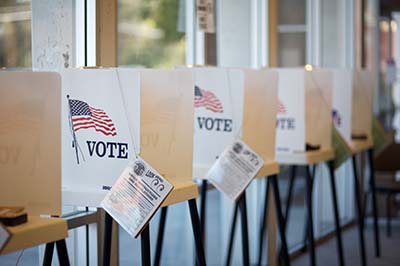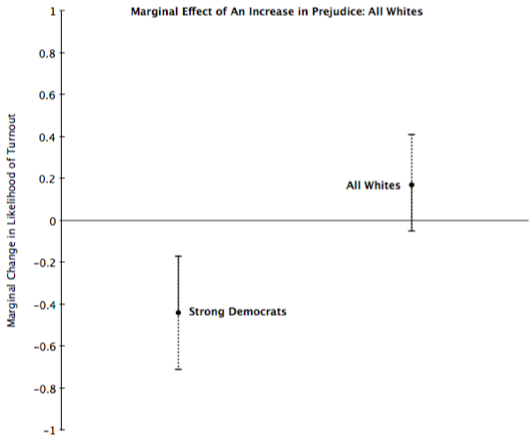Post developed by Katie Brown and Spencer Piston.
The 2008 election in the United States featured the first black major party presidential candidate in U.S. history – Barack Obama. Obama won in a historic election. But was his victory margin narrower than it could have been? In particular, did racial prejudice erode Obama’s vote share among those whites expected to vote for him: strong Democrats?
Center for Political Studies (CPS) affiliate and Ph.D. Candidate in Political Science at the University of Michigan Spencer Piston explored this question with co-author Yanna Krupnikov (Northwestern University) in a recent article published in Political Behavior.
The researchers identify a gap in the field. Where previous work focuses on the connection between prejudice and vote choice, few studies have considered the relationship between prejudice and turnout on Election Day.
The researchers evaluate the relationship between racial prejudice, strength of party identification, and turnout. They are especially interested in a situation in which a white voter, high in racial prejudice, is faced with a black candidate from her party. How will the voter vote? In this scenario, racial prejudice is pitted against party identification.
Examining 2008 data from the American National Election Studies and replicating their analyses with survey data from a wave of a 2007-2008 Associated Press-Yahoo! News-Stanford University study, the authors find that highly partisan and prejudiced voters often address the tension embodied in a black candidate from their party by not turning out to vote. Interestingly, the authors also test if this group would instead vote for the white Republican presidential candidate John McCain. They would not. This is because they cannot compromise on race or partisanship. Unable to compromise, they instead choose not to vote.
These findings have significant implications for American elections. The authors conclude, “Racial prejudice undermines black candidates’ efforts to mobilize strong partisans.”
Spencer Piston will join Syracuse University in the fall as an Assistant Professor of Political Science.



